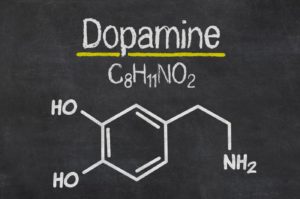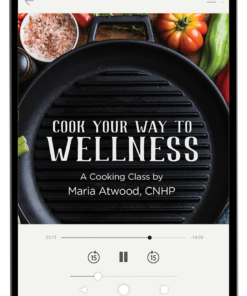I find it interesting that in our pursuit of optimum health and our efforts to resolve lingering pain, anxiety, or hopelessness, we don’t take a serious look at the profound, healing effects of music. Not just any music, but music that’s been proven to help resolve many of our physical, mental, and, yes, even spiritual conflicts. When we understand this phenomenon, we may at last come to know healing or, at the very least, a type of peace that allows us to cope with those things we cannot change.
My intent in writing about my experience with healing music began when I recently found myself in a no-win situation. After coping with a serious disc injury for many years with little more than Calcifood Powder (which contains raw bone meal, raw bone marrow, and when taken with raw milk, all of the amino acids), by some good fortune I realized that when we’re coping well with an injury we may start doing everything that at one time was natural to us. For example, I spent way too much time earlier in the spring bending over for extended periods of time planting my heirloom herbs, which proved to be a big mistake given my disc injury. (Sigh)
I’ve now increased my intake of Calcifood Powder, and additionally I’ve been seeking other, more esoteric (special, rare, or of unusual interest) methods to increase healing. In one of my early morning meditations, the word “music” entered my consciousness! Sounds crazy, but that’s in fact what happened. Having taken that inner message to heart, I did some research, and since then I’ve noticed some very interesting changes have taken place. It seemed appropriate to share my discovery of how effective this healing mode can be.
If you’re experiencing any kind of unresolved health situation, be it physical or mental, or if you know of someone who is having trouble healing, please consider my following recommendations. With that in mind, allow me to share with you some of the more interesting research that shows us the how, what, and why of music’s ability to create healing.
Music and the Brain Neurotransmitters
One of the more interesting articles is Dr. Mercola’s “Music and Your Brain Documentary.” You’ll find several videos embedded in the article, but the significant part is as follows:
When you hear music, many areas of your brain light up. Music triggers activity in the nucleus accumbens, a part of your brain that releases
the feel-good chemical dopamine and is involved in forming expectations.
At the same time, the amygdala, which is involved in processing emotion, and the prefrontal cortex, which makes possible abstract decision-making, is also activated. Meanwhile, oxytocin, the bonding hormone that’s released when we interact with our loved ones, is also released by music, specifically by singing together.
Many evolutionary biologists believe that music was fundamental in our ability to function as humans and hold together large communities of people, as music is capable of producing oxytocin, i.e., bonding and sharing emotions, on a massive scale.
What Specific Type of Music Is Best?
In the following excerpt from eMED Expert, we learn the following:
Music is an art, entertainment, pleasure, and…medicine for the soul and body. Music is one of the few activities that involve using the whole brain. It is intrinsic to all cultures and has surprising benefits not only for learning language, improving memory and focusing attention, but also for physical coordination and development.
Not all types of music have favorable effects. Music can be distracting if it’s too loud or too jarring, or if it competes for our attention with what we’re trying to do. But for the most part, exposure to classic music has beneficial effects.
Pain relief: Overall, music does have positive effects on pain management. Music can help reduce both the sensation and distress of both chronic pain and postoperative pain.
Listening to music can reduce chronic pain from a range of painful conditions, including osteoarthritis, disc problems and rheumatoid arthritis, by up to 21% and depression by up to 25%, according to a paper in the latest UK-based Journal of Advanced Nursing.
There are several theories about how music positively affects perceived pain [emphasis mine]:
1. Music produces revulsive effect
2. Music may give the patient a sense of control
3. Music causes the body to release endorphins to counteract pain
4. Slow music relaxes by slowing breathing and heartbeat
How Listening to Music Affected Me
Once I realized that the stress of coping without any hope of finding other alternatives besides surgery—which I’d been told would only be successful for a few months up to about three years at best—I went on to find what is now called the “Mozart Effect.” Don Campbell describes this in his book The Mozart Effect: Tapping the Power of Music to Heal the Body, Strengthen the Mind, and Unlock the Creative Spirit.
In addition to my daily bone broth, raw milk with up to two tablespoons Calcifood Powder, and other nourishing foods prescribed to increase my dopamine levels (you can find them here), I added about thirty minutes of morning and evening listening to Mozart. At that time I didn’t know that there was a special audio recording that would have been good to have. I just got a comprehensive Mozart CD, and I quietly listened to the very calming and beautiful music while visualizing my disc injury healing completely.
As I mention above, I’ve since found a Mozart recording that may be even more effective, although I’ve not listened to it so I cannot recommend it as such. I can only encourage you to try listening to Mozart, Strauss, or some other soothing classical music, which, I understand, is equally good at creating the brain environment that hastens healing.
An interesting result from my quiet periods of listening to music is that my pain has indeed become less pronounced. Another mysterious effect is that my action thoughts have become more apparent, and I was led to seek a second opinion from an orthopedic surgeon (something I would never have been amenable to in the past).
After some X-rays and nerve testing, it turns out that because I’d been using “Dr. YouTube” for self-diagnosis and advice, I had been doing all the wrong exercises, which were also exacerbating my pain level! Please remember that getting a diagnosis first by an MD may be essential if you have an ongoing situation that isn’t healing. I’m now seeing a certified McKenzie therapist and having some good results.
Foods That Increase Dopamine and Endorphins
When we’re in pain, whether it’s physical or mental, one of the things we frequently do to sabotage our healing is to eat readily available junk food instead of healthy meals and snacks. In my recent blog post “Be Happy—No Matter What,” I outline some of the very foods that increase these brain neurotransmitters.
Note from Maria: I am a Certified Natural Health Professional, CNHP, not a medical doctor. I do not diagnose, prescribe for, treat, or claim to prevent, mitigate, or cure any human diseases. Please see your medical doctor prior to following any recommendations I make in my blogs or on my website.
Photos from iStock/LDProd (main image), Zerbor (dopamine), Furtseff (trumpet).




